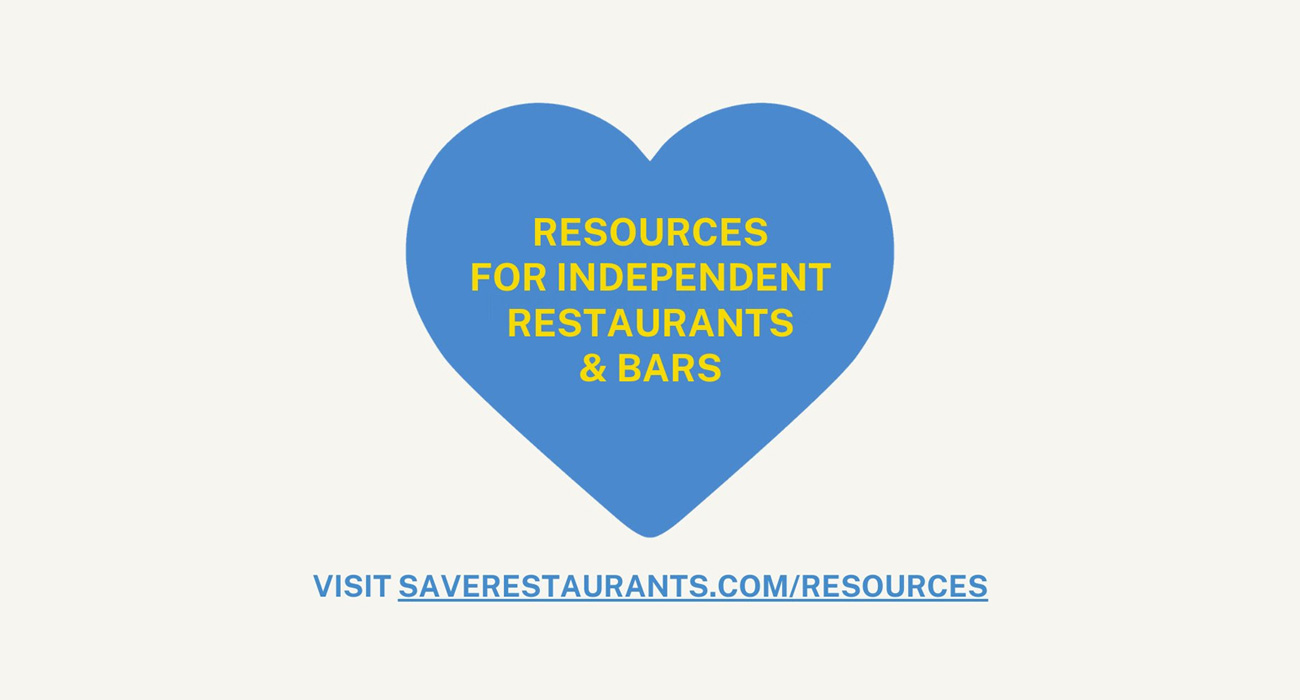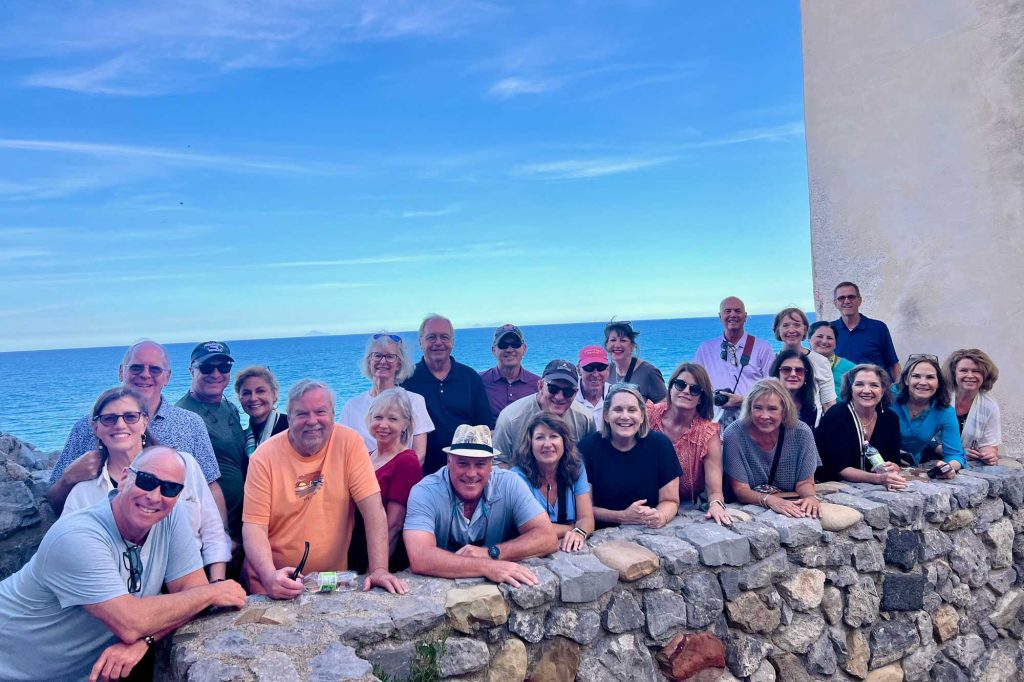One year ago today, my life seemed to be at a complete standstill. The global pandemic was shifting into second gear, my city and state were shut down except for essential businesses, and the six restaurants and two bars I had spent 32 years of my life building were all closed. The situation was dire and the future looked bleak. My wife, two children, and I were holed up at our house which I wasn’t sure we’d even be living in a few months down the road. I was doing what I could to help our 300 furloughed team members and the community and state at large, but all future outlooks seemed grim.
On March 19th I received an early-morning text from an industry friend who mentioned that a group of concerned chefs and restaurateurs from across the country had met the previous day via Zoom to try and figure out what could be done to save the restaurant industry from a mass extinction event. I joined the group for their second meeting later that morning, not knowing anyone on the video call or what lay ahead on several fronts.
The Independent Restaurant Coalition was born out of a crisis and had one single mission— to save the independent restaurant industry. The fast-food franchises in my hometown had lines at the drive-through window that stretched for blocks, and the chain restaurants seemed to be getting by in the crisis. Most were publicly traded and had access to capital. The small mom-and-pop cafes and diners in my town were going out of business at a frightening rate.
I met with my fellow IRC members via Zoom twice a day, seven days a week, for the first month or so. I knew none of them, personally. I knew several by reputation and there were a few high-profile celebrity chefs and restaurateurs on the calls, but for the most part, we were a collection of everyday, concerned local businesspeople whose industry was in crisis and on the verge of annihilation.
Over 15% of the nation’s 500,000 independent restaurants had already closed, and the people who compile such statistics were predicting that 85% of the nation’s independent restaurants could close permanently if something weren’t done to save the industry.
In one of those early meetings— it might have been the first meeting I joined, I don’t remember— a wine broker from South Carolina, Harry Root, made the statement, “If anyone knows a congressperson or senator, let us know.” I messaged Root that I knew my home-state senator, Roger Wicker, and he replied, “You are my new best friend.”
Root and I began working with Senator Wicker and his staff later that morning, and within weeks, Senator Wicker introduced the RESTAURANTS Act on the floor of the Senate, to compliment a similar bill introduced by Representative Earl Blumenauer in the House of Representatives. Within several weeks— and impressively only eight weeks after the IRC was formed— three of our members were meeting in the White House discussing the plight of independent restaurants.
Over the next several months members of the IRC worked tirelessly to garner support for both bills. We held hundreds of meetings with Senators, Representatives, and their staffs and sent over 100,000 emails to Congress. By September— just six months from that first meeting— the House had passed the RESTAURANTS Act and the Senate had 52 members from both sides of the aisle on board.
In the meantime, over 2,400,000 people who work in independent restaurants were out of work. Over 65,000 of the nation’s 500,000 independent restaurants had closed their doors permanently, and the nation’s number two employer was on the brink of total collapse.
After the national election, and with a new congress seated— almost a year to the day the IRC held its first meeting— congress passed the first-ever grant relief program for restaurants and bars. The $28.6 billion program was modeled after the RESTAURANTS Act and used the same structure and guidelines that had been established several months earlier.
The new $28.6 billion restaurant grant fund will help countless independent restaurants and bars make payroll, pay down debt, and survive the ongoing pandemic. What started as a few independent restaurant operators on a Zoom call has become a grassroots movement with over 150,000 people enthusiastically engaged.
I was speaking to a journalist last week who asked, “Now that you’ve gotten your bill passed, what’s next for the IRC?” Actually, our work is only halfway done. We are now working all available channels to make sure that all independent restaurants and bars have access to the funds. It’s one of the things that makes me most proud to have been a founding member of the IRC. Many trade groups would get a bill such as ours passed, and then lay low making sure there would be enough grant funds to go around to the select group at the top who were plugged in.
The IRC is doing the opposite of that and exhausting every outlet available to get the word out to the smallest of the small operators. We are working side-by-side with the administrator of the grant funds— the Small Business Administration, and the White House— to make sure that access is easy and legit. We have been hosting hundreds of community roundtables to disseminate the latest information on the bill.
The process as it currently stands is a cumbersome one involving a DUNS number and the registration for the System for Award Management (SAM). In this dire time, the IRC feels that the government should be making it easier for eligible restaurants to apply for grants, not harder. Registering for DUNS and SAM takes time and expertise, which will stand as a roadblock to many small businesses who qualify for funding. The same system the Department of Defense uses to pay military contractors shouldn’t be what the SBA uses to pay independent restaurants. We at the IRC are pushing for the SBA to change the process and remove unnecessary barriers to entry for eligible neighborhood restaurants which will simplify the process for grant application.
In the meantime, the grant application process requires DUNS and SAM registration, so we suggest that the independent restaurant and bar community register for them immediately, in case they remain a part of the application process.
If you know an independent restaurant or bar owner who qualifies for grant aid to get back on their feet, steer them to the IRC’s website www.saverestaurants.com and tell them to stay plugged in as this process moves forward in the coming weeks.
It’s funny, when I started meeting with the IRC, I assumed everyone on those Zoom calls already knew each other and I was the odd man out. What I came to learn, several months in, is that most of us didn’t know each other when the calls began. We were a diverse group from various backgrounds and different parts of the country with varied levels of operations. Though we were all so focused on one goal— saving the independent restaurant industry— that we became a familial collective working towards one shared objective. Willie Morris called such things a “common mutuality.” Today, just a little over one year later, I consider those members close friends.
Help is on the way.
Onward.



